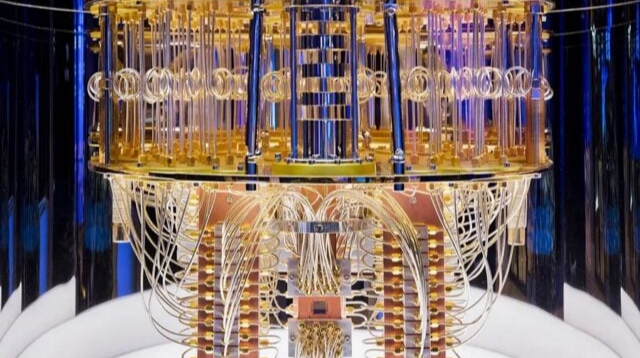“

Dmytro Dzhugalyk Author of news on Mezha.Media. I write about what I am actively interested in, namely technology, games and cinema.
Internet giant called his demonstration an example of a “quantum advantage”—the moment when quantum systems gain a clear advantage over classical computers. According to the company, the world of quantum computing is poised for confirmation that quantum machines are finally reaching a level where they can outperform supercomputers in certain types of calculations.
Google’s algorithm mimics the quantum-mechanical behavior of systems in nature, such as the interaction of atoms in a molecule. The company claims that by running the algorithm on its quantum chip, it got a result 13,000 times faster than on a “classical” supercomputer.
What’s more, these results can be verified. As Google notes, they can be played on another machine – which could not be done before. This is an important step to increase confidence in calculations performed by quantum computers.
Hartmut Neven, head of Google’s Quantum Artificial Intelligence Research Lab, calls it “a demonstration of the first algorithm with proven quantum superiority” and “a milestone in software development.” However, the company does not yet say that the work itself will have practical applications, but instead says that the Quantum Echoes algorithm demonstrates a technique that can be used in other algorithms.
As an example of a possible practical application, a second Google Scholar paper demonstrated the use of this technique in nuclear magnetic resonance, a technology already widely used to study molecules. In the paper, an experiment was conducted on a relatively small quantum system, which could not work faster than a classical computer, that is, full practical quantum superiority has not yet been achieved.
”, — write: www.pravda.com.ua

Dmytro Dzhugalyk Author of news on Mezha.Media. I write about what I am actively interested in, namely technology, games and cinema.
Internet giant called his demonstration an example of a “quantum advantage”—the moment when quantum systems gain a clear advantage over classical computers. According to the company, the world of quantum computing is poised for confirmation that quantum machines are finally reaching a level where they can outperform supercomputers in certain types of calculations.
Google’s algorithm mimics the quantum-mechanical behavior of systems in nature, such as the interaction of atoms in a molecule. The company claims that by running the algorithm on its quantum chip, it got a result 13,000 times faster than on a “classical” supercomputer.
What’s more, these results can be verified. As Google notes, they can be played on another machine – which could not be done before. This is an important step to increase confidence in calculations performed by quantum computers.
Hartmut Neven, head of Google’s Quantum Artificial Intelligence Research Lab, calls it “a demonstration of the first algorithm with proven quantum superiority” and “a milestone in software development.” However, the company does not yet say that the work itself will have practical applications, but instead says that the Quantum Echoes algorithm demonstrates a technique that can be used in other algorithms.
As an example of a possible practical application, a second Google Scholar paper demonstrated the use of this technique in nuclear magnetic resonance, a technology already widely used to study molecules. In the paper, an experiment was conducted on a relatively small quantum system, which could not work faster than a classical computer, that is, full practical quantum superiority has not yet been achieved.
